Ali Abbasi’s new film, The Apprentice, may be named after the TV show that fatefully beamed Donald Trump into millions of homes for fourteen seasons before its star’s even more fateful run for the US presidency. But after watching Abbasi’s twisted and wildly entertaining bildungsroman, featuring Sebastian Stan as a young Donald and Jeremy Strong as his dark-arts mentor Roy Cohn, you recognize an echo of the sorcerer’s apprentice too.
Abbasi starts the film with footage of Richard Nixon telling the world he is not a crook, before segueing to a punk-soundtracked montage of broke-down Seventies New York. Amid the city’s atmospheric ruins, a figure with a now-unmistakable gait and hair walks into a club, but we quickly learn he’s a nobody, lurking on the periphery of the club’s influential patrons and visibly boring his date.
At least, that is, until Cohn — Joseph McCarthy’s ruthless chief counsel during the witch-hunts of the Fifties and eventually a prominent and thrice-indicted political fixer — claps eyes on him. At his table of bigwigs and reprobates, Cohn advises the rube from Queens, whose family business has been charged by the feds with violating the Fair Housing Act, to “file a lawsuit, always file a lawsuit.” It’s the first of many such pugilistic lessons, the most important of which are: attack, attack, attack; admit nothing, deny everything; and no matter what, always claim victory and never admit defeat.
Cohn files a baseless countersuit on behalf of the Trumps, but they end up settling the housing discrimination case out of court and calling it a win. It opens the door for the young go-getter to follow his dream of building a hotel by Grand Central Terminal, his path smoothed by the reptilian Cohn. In the ensuing years, the film shows, Trump’s plans become grander; he marries Ivana Zelníčková (played by a spunky Maria Bakalova); his brother dies, Trump Tower is built and the Donald’s soul leaves the building.
Meanwhile, the closeted Cohn is increasingly sidelined, looking progressively more unwell as the “gay cancer,” as Trump callously calls it, begins to take hold. With Trump ever more florid and bloated, Cohn demonstrably shrinks, before he is unceremoniously dropped by his germophobe protégé. They make up, but only when Trump needs help again. A late scene of Trump clumsily pushing his etiolated mentor around in a wheelchair, the pair in matching pale suits like the id couple they are, is hilarious in spite of itself.
Abbasi’s heady weaving of the antic and the deadly serious may explain some of the criticism that’s been leveled at the film — that its tone is inconsistent, and even convivial, as if the director considered a second Trump presidency sufficiently neutered to be able to make a biopic about him. In fact, the Iranian-Danish director, as well as screenwriter Gabriel Sherman, have talked about the struggle to get the film made, and Trump’s team predictably threatened legal action after it was screened in Cannes earlier this year, with US distribution only recently secured. A disclaimer at the beginning says parts of the film are fictionalized.
A controversial scene shows marital rape, recalling allegations made and later retracted by Ivana Trump — the striking moment immediately swept away by a tide of frothy set pieces and Cohn’s eventual passing. Oddly, though, something about the film’s impressively compressed storytelling, its rollicking, rollercoaster clip, seems analogous to the Trumpian news cycle, before, during and after his presidential tenure. Blasts of ominous classical music reminiscent of the more serious moments on the TV show Succession, in which Strong played desperate heir-apparent Kendall Roy, belie the froth. All the performances are excellent, but Strong’s Cohn is particularly thrilling, especially the scene where his character watches the sparklers go out at his fifty-ninth and final birthday party.
The last scene, in which Trump recites Cohn’s mantra to a would-be biographer (of course without giving him credit) is followed by a haunting image of the city and a billowing American flag reflected in the future president’s unblinking eye. Breathe in — and buckle up.
This article was originally published in The Spectator’s November 2024 World edition.



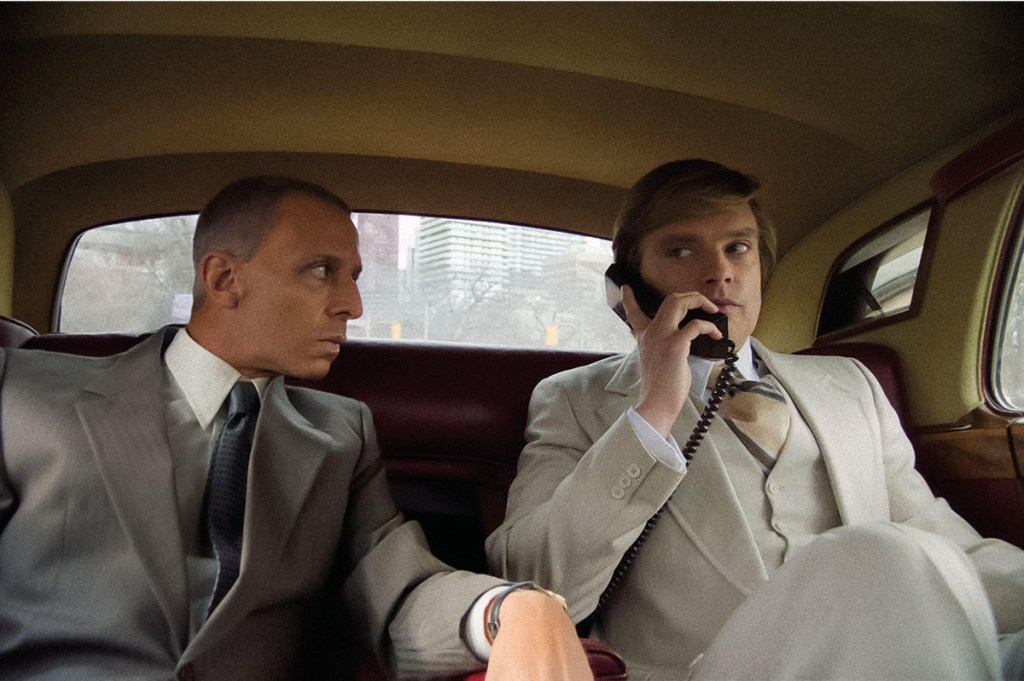


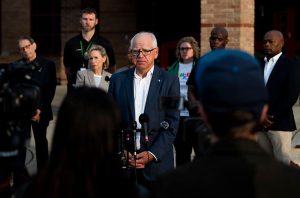




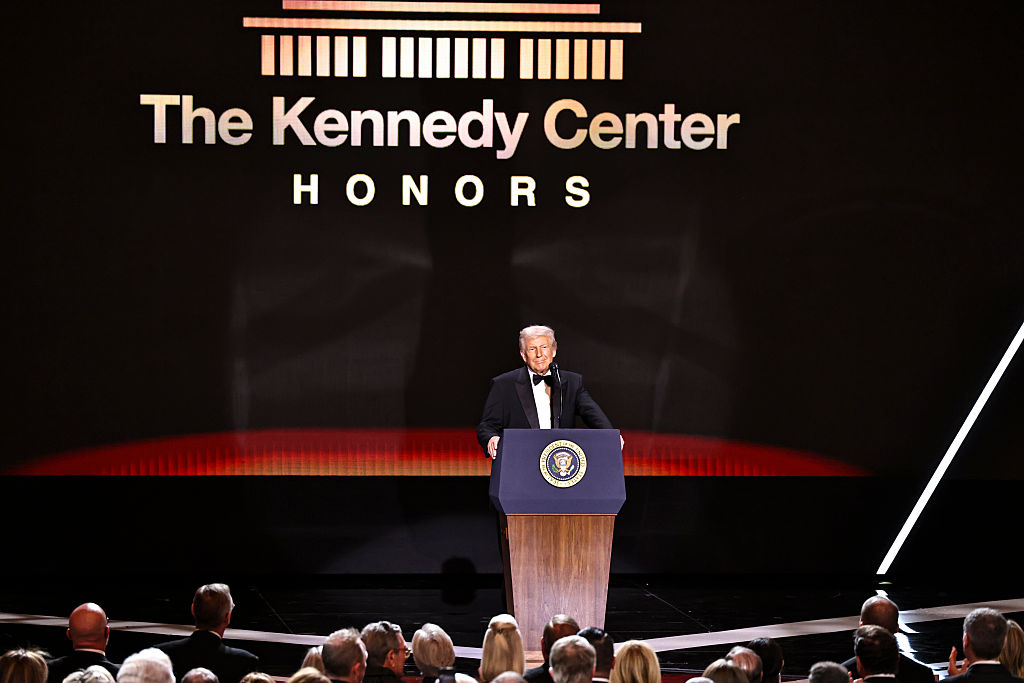
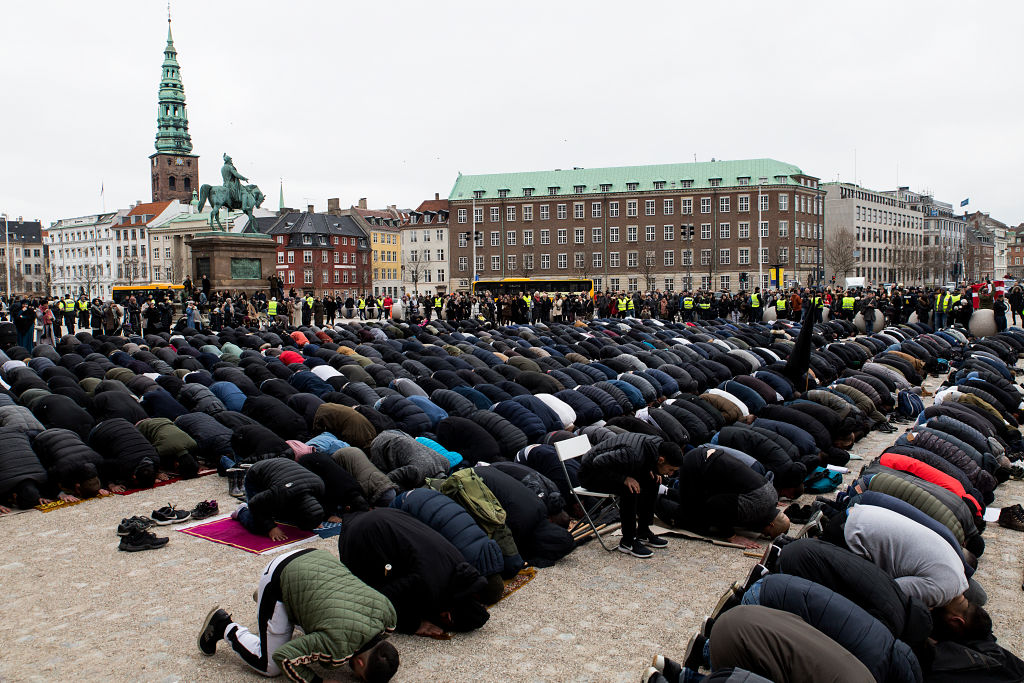
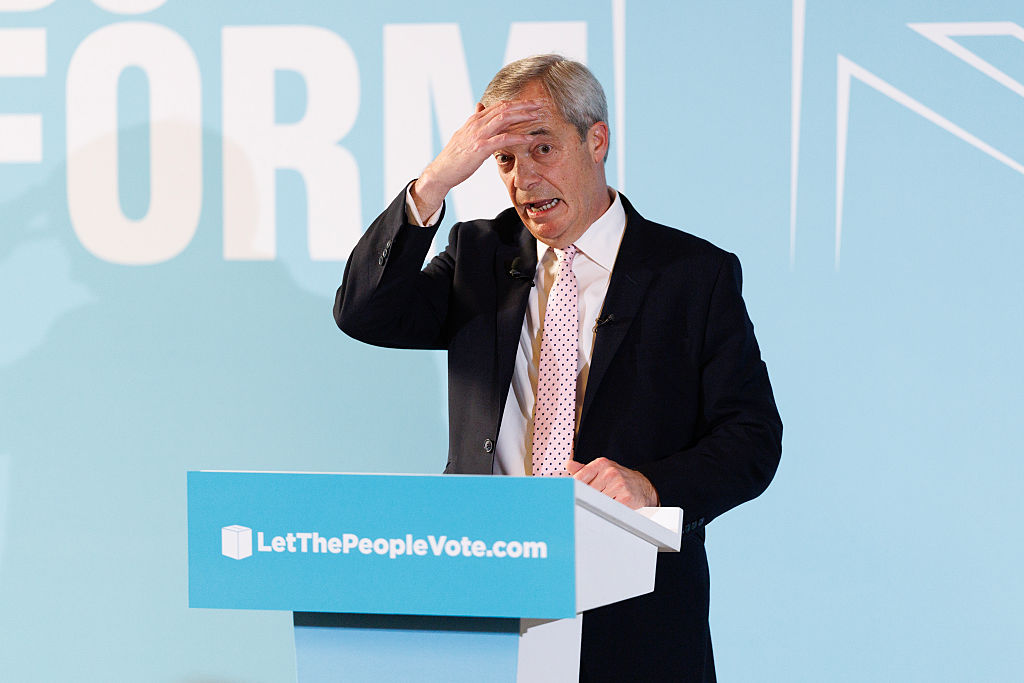








Leave a Reply